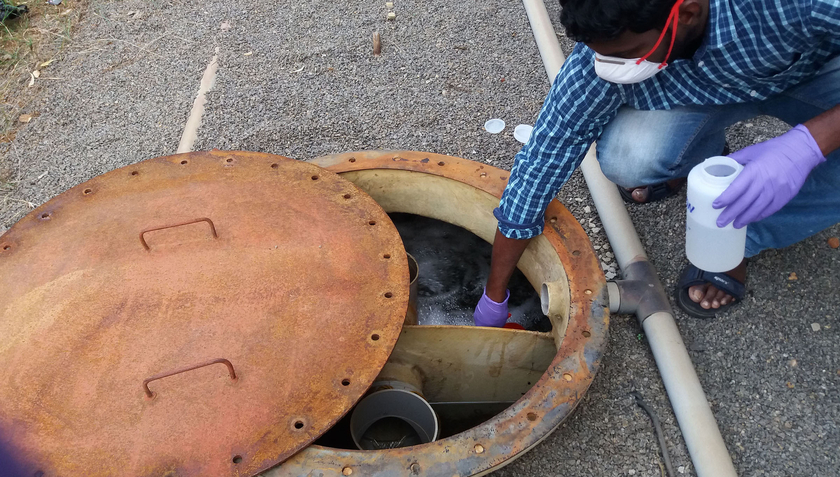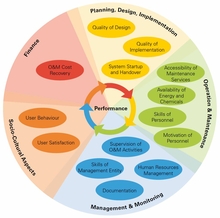The 4S Project
The 4S Project: Evidence-Based Recommendations for Small-Scale Wastewater Treatment and Reuse Systems in India
By Christoph Lüthi and Lukas Ulrich

The project Small-Scale Sanitation Scaling-Up (4S), funded by the Gates Foundation, was the first systematic assessment of small-scale sanitation (SSS) systems in South Asia. It aimed to provide policy recommendations for the successful implementation and operation of SSS systems at scale. India was the focus country, with more than 20’000 privately owned and operated units already installed. The three-year research was implemented by Eawag-Sandec in collaboration with IIT Madras, BORDA and other partners.
The study included the following main components:
- Technology, implementation and operation: landscape study, basic assessment of more than 300 existing systems, and detailed performance analysis of 40 systems
- Governance: analysis of policies, regulations, stakeholders and institutional arrangements for SSS
- Financial sustainability: study of life cycle costs of systems as well as financial reasons for underperforming systems
The researchers analysed the factors critical for the success of SSS systems (see diagram), which is also a key research focus of Wings. Research methods included site inspection, wastewater sampling and stakeholder interviews.
Some of the key findings are:
- Current policies in India have enabled the establishment of a capable private sector with technical solutions ready to be scaled up. In Bangalore, an estimated 10-20% of the wastewater is already treated and partly reused by SSS systems.
- Any of the technologies studied have the potential to achieve quite stringent BOD, COD and TSS standards. However, systems generally fail to meet nutrient and microbial parameters.
- Poor performance is commonly linked to unclear responsibilities, insufficient instruction and supervision of operators and intermittent operation, among other reasons.
- The rapid scaling-up of SSS in India has not been accompanied by the development of the necessary governance framework. As a consequence, SSS systems often suffer from a lack of proper management, insufficient monitoring and weak enforcement.
- Life cycle costs vary considerably between technologies, but choices are often made based on capital costs only, leading to high running costs.
Two resulting key recommendations are i) the creation of dedicated SSS management units at state and city level, and ii) the development of an online platform collating all databases, streamlining processes from establishment to monitoring, and allowing meaningful collaboration between stakeholders.
Key insights
- Having been a relatively unmanaged process until now, it is evident that there are major challenges to the on-going scale-up of small-scale sanitation systems in India.
- Taking control of the process and implementing targeted measures both at the sanitation system level and at the governance level can lead to tremendous benefits in terms of public health, environmental protection and water reuse.



